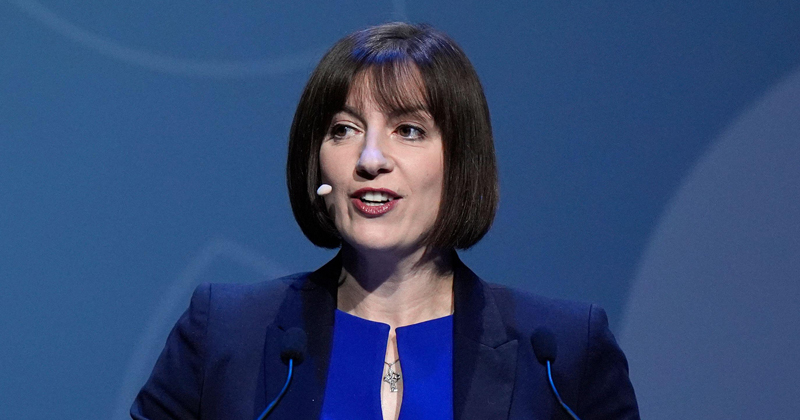Rollout of new V-level qualifications, which will replace “hundreds” of courses that sit alongside A-levels and T-levels, is expected to begin from 2027, the skills white paper will say.
The government will confirm V-levels, alongside new “stepping stone” qualifications for GCSE English and maths re-sit students and two new level 2 “pathways” in a long-awaited white paper on post-16 education and skills tomorrow.
It comes ahead of the full report of the independent curriculum and assessment review, led by Professor Becky Francis, which is expected in the coming weeks.
The white paper will introduce V-levels, first revealed by Schools Week’s sister title FE Week, as “rigorous” qualifications linked to “real-world job standards”.
Unlike T-levels, students will be able to enrol on multiple V-levels, or combine them with A-levels, to study different subjects and sectors.
Other level 3 qualifications, like BTECs and other applied general qualifications, are expected to continue to be phased out.
Timetable proposed ‘imminently’
Schools Week has been told a timetable to transition to V-levels will be proposed “imminently”, but the Department for Education (DfE) expects the first V-levels to be introduced in academic year 2027-28.
V-levels will “streamline the confusing landscape of approximately 900 equivalent vocational qualifications at level 3 currently available to 16 to 19-year-olds which mean learners and employers are unclear about the purpose and value of some qualifications,” the DfE said this evening.
There will be a consultation on the proposals.

Education secretary Bridget Phillipson said: “Technical and vocational education is the backbone of this country’s economy and central to breaking the link between background and success, helping hundreds of thousands of young people get the skills they need to get good jobs.
“But for too long it has been an afterthought. Young people have been left to navigate an overcomplicated landscape and repeatedly labelled as ‘failures’ by a system that has held them back from all-important English and maths grades.
“Our reforms are building a post-16 education system that truly matches young people’s aspirations and abilities, delivering the opportunity and growth our economy needs.”
Myles McGinley, managing director of Cambridge OCR, said the introduction of V-levels “could be a tremendous opportunity for young people.
“The sector needs the time to collaborate and develop qualifications that meet the needs of students, offer lasting value, and elevate the esteem in which vocational qualifications are held. Schools and colleges must be given the space and resource to prepare to teach V-Levels to the highest standard.”
English and maths stepping stones
School leavers who do not achieve grade 4 passes in GCSEs English and maths will have access to new “stepping stone” qualifications. They will be “targeted at students with lower attainment” and designed to “better prepare them to resit these GCSEs”.
A condition of funding rule, which requires 16 to 19-year-olds to continue to study English and maths until they achieve the grade 4 GCSE exam pass, will remain in place.
The DfE emphasised a push on English and maths attainment for white working class young people as part of this announcement.
“More than six in ten white British pupils eligible for free school meals do not achieve a grade 4 or above in English and maths by the end of key stage 4, meaning they are more than twice as likely to need to resit these exams post-16 than their more affluent peers,” the department said.
Francis’s interim report earlier this year called for the government to “reconsider the available pathways so that all learners have the best opportunity to reach level 2 in maths and English by the end of their 16 to 19 study”.
Ministers will also launch two “pathways” for level 2 students. One will be designed for young people who progress straight into the workplace, and another will be for those wishing to progress to level 3 courses.
White paper
Commenting on the white paper announcements, Francis said she was “delighted that the government has recognised and accepted our recommendations to promote excellence and improve young people’s life chances by ensuring a choice of strong, well-regarded qualifications: A level, T-level or V-level.”
She added: “The direction supporting improved level 2 progress, including study of maths and English, will also help secure successful futures.”
The white paper, expected to be published tomorrow afternoon, will set out the government’s strategy for further education, higher education and apprenticeships.
It follows prime minister Sir Keir Starmer’s party conference speech last month, in which he committed to two-thirds of young people gaining a higher-level qualification by the age of 25, either through university, technical education or apprenticeships.















Your thoughts